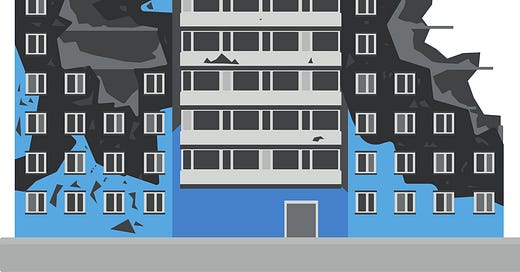Dear Friends of Democracy,
There is a lot of horror in the world. We all know it. We know it better than ever before. Because the media brings cruelty from around the world to our televisions and cell phones.
I previously thought that this media development would reduce tyranny and wars eventually because it would create a greater awareness of what terrible things people can do, and therefore, more people would stand up against oppression and other horrors.
Maybe I was wrong.
Because of habituation.
If you enter a café, you will probably recognise the smell of freshly brewed coffee. Twenty minutes later, you can't smell that anymore.
"This is because your olfactory neurons stop firing in response to a now-familiar odor," Tali Sharot and Cass R. Sunstein, a neuroscientist and a law professor, write in a New York Times piece "Why People Fail to Notice Horrors Around Them".
Habituation is one of human most basic biological characteristics. And this is why we also could get used to horror when this horror develops slowly.
Sharot and Sunstein write:
"When threats start small and increase gradually, they end up eliciting a weaker emotional reaction, less resistance and more acceptance than they would otherwise. The slow increase allows larger and larger horrors to play out in broad daylight — taken for granted, seen as ordinary."
There is a bunch of scientific proof for that thinking, Sharot and Sunstein argue.
For instance, a famous study conducted in the early 1960s.
Volunteers were asked to deliver small shocks at first and then only very slowly, and by increments, to ramp up the voltage to what seemed to be high levels. Again, Sharot and Sunstein: "The volunteers may have felt some guilt at the beginning, but because the shocks increased by small increments, any feelings of guilt were likely less intense than they would otherwise have been."
This human trait helps build up authoritarian leadership and dictatorships. The fact that hardly anyone in Russia is standing up against Putin's increasing reign of terror is because any form of resistance is mercilessly suppressed. But it may also be that people have gotten used to the conditions. The situation there is worsening, but the next step is only a little worse than before.
So, what to do about it?
We need more "dishabituation entrepreneurs", Sharot and Sunstein suggest.
Those are people who have not habituated to the evils of their society. Like Mohandas Gandhi, Rosa Parks, Gloria Steinem, Nelson Mandela, and Alexei Navalny. And those are just the famous ones. There are many of these people everywhere in society, Sharot and Sunstein write. Many of them are not themselves victims but people who notice the suffering of others and speak out or act. People who refuse to get used to horror. And they are the ones who can get others to dishabituate.
So, resistance efforts can emerge in response to injustice or horror.
But can we become such a dishabituation entrepreneur ourselves?
Sharot and Sunstein think so. They refer to the English philosopher, political economist, and politician John Stuart Mill (1806–1873) "and his experiments of living."
Mill emphasised the importance of seeing one's beliefs, values, norms and situations from a distance to be able to evaluate them and learn that a change would be desirable.
But how do we get such a distance view? By diversifying our experiences.
Again, Sharot and Sunstein:
"If people intentionally expose themselves to different cultures, different practices and different forms of government, the injustices around them may no longer seem natural and inevitable."
So let's travel to foreign countries and cultures. Or stay at home and get in contact with people from foreign countries and with foreign cultures there. There are probably many new things to discover in your local area.
In any case, let's open ourselves up to the stranger. It will help save democracy.
✊,
Johannes Eber
"We must learn how to be surprised, not to adjust ourselves." – Abraham Joshua Heschel, Polish-American rabbi (1907–1972)





